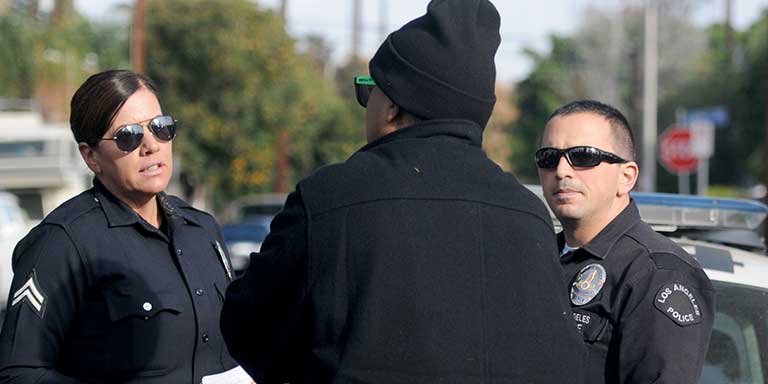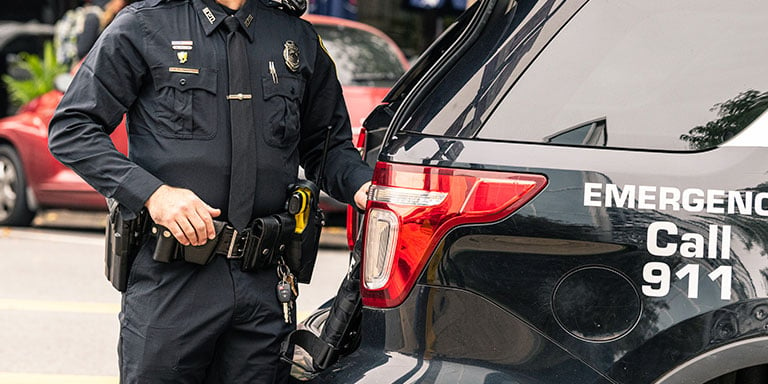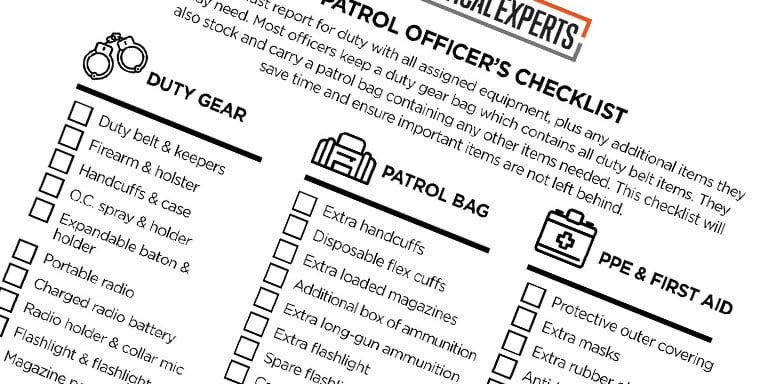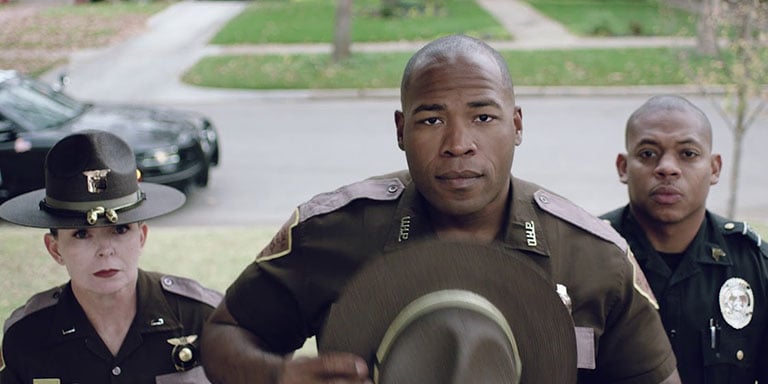Tactical Experts > Public Safety > Law Enforcement
Officer’s Guide to Internal Affairs Investigations
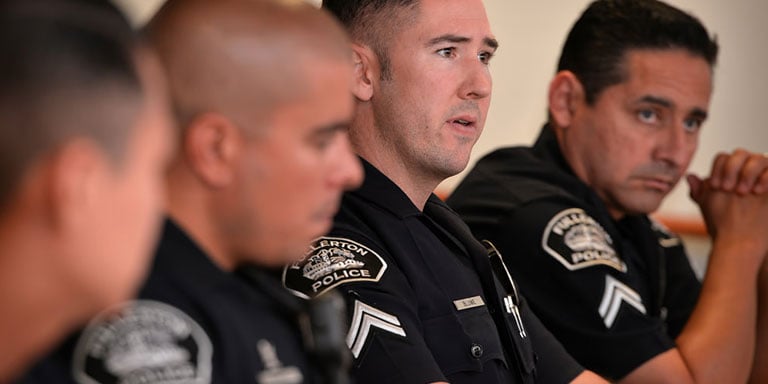
Internal Affairs (or IA) has the duty of investigating police officers. Receiving a notice of investigation is never a welcome surprise; it means the officer is the target of an inquiry alleging improper conduct. In most cases, the investigation is opened in response to a citizen complaint. In this guide, we'll tell you everything you need to know about handling an internal affairs investigation.
Receiving a Notice of Investigation
In most departments, a member of IA notifies the officer in writing that they are the target of an internal investigation. Some (but not all) notices name the alleged infraction, and some also include the date of the infraction. Here's an example of what a notice of investigation may include:
Officer Smith,
Be advised that this office has received a complaint of a demeanor violation. The date of the incident was March 21, 2020. An investigator from this office will contact you regarding this matter.
Recalling the Incident
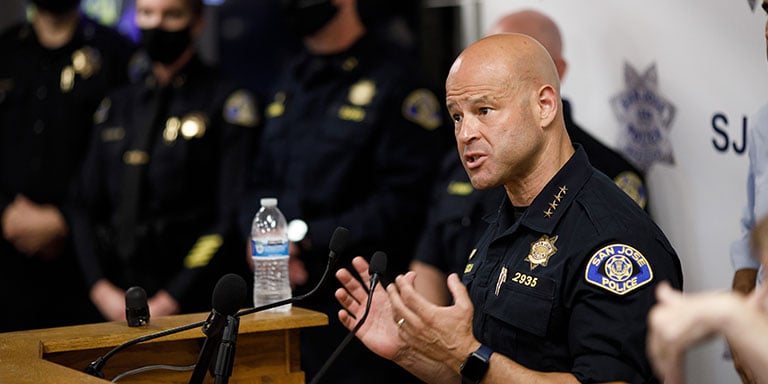
Most officers receiving such notice are not blindsided; there are usually indications during the original call that the person was not happy with the officer's actions. Some people even specifically threaten to file a complaint with Internal Affairs. This threat should always be taken seriously at the time of the incident.
The officer should make sure they have handled the case or incident by the book. Additionally, they should take notes on the incident, documenting what happened and what was said. Body-cams are good (see our officer's guide to police body cameras), but they don't always capture all the action — so document it. As a final step, the accused officer might want to give their supervisor a heads-up that a citizen was not happy and threatening to file a complaint. These preemptive actions can help an officer demonstrate they have nothing to hide.
The Internal Affairs Investigator

Understanding the Internal Affairs investigator's job can help to reduce a potentially adversarial relationship, which is common between IA and the target officer. Internal Affairs is an assignment that officers accept reluctantly, knowing they are being assigned to investigate other officers they have worked with side by side for years. Internal Affairs cases are different from civilian investigations. The targeted officer generally has a similar level of knowledge of the law, investigative techniques and interrogation tactics as the IA investigator (for more on interrogation tactics, take a look at our officer's guide to custodial interviews). This can make the investigator's job more difficult.
While officers may think the Internal Affairs investigator is looking to find fault or assess blame, this is not their mission; their task is to be completely neutral, with no bias in either direction. Complaints of wrongdoing must be objectively investigated to their logical conclusion. The IA investigator must follow the evidence wherever it may lead.
Many times the Internal Affairs investigation clears the target officer of a serious crime or violation. However, the IA investigator never knows in advance what they might find. An independent IA unit investigating complaints can help maintain citizen trust in their police department. Additionally, the process can identify deficiencies in departmental policies, training or supervision.
Everyone in the police department has an assigned job to do. It is a mistake to try to make an Internal Affairs investigation personal. At some point in many officers' careers, they may even find themselves assigned to the IA investigator's position themselves. Whether you're being investigated or doing the investigating, it's important to maintain professionalism and leave biases behind.
Doing the Research
An Internal Affairs investigation is a serious matter, and no officer should go into their investigation without having done all of the pertinent research. It's imperative that the target officer review the incident report, maintain a thorough understanding of their department's rules and regulations and understand the rights that their job entails them.
Reports

If a report was written on the incident, the officer being investigated should get a copy and review it. Reviewing this document may bring back other relevant events that the officer may want to jot down. If the officer finds any inaccuracies in the report, these should be noted and brought to the supervisor's attention. As a result, a supervisor may or may not want the officer to complete a supplemental report clarifying or correcting any inaccurate information.
SOPs and Rules & Regulations
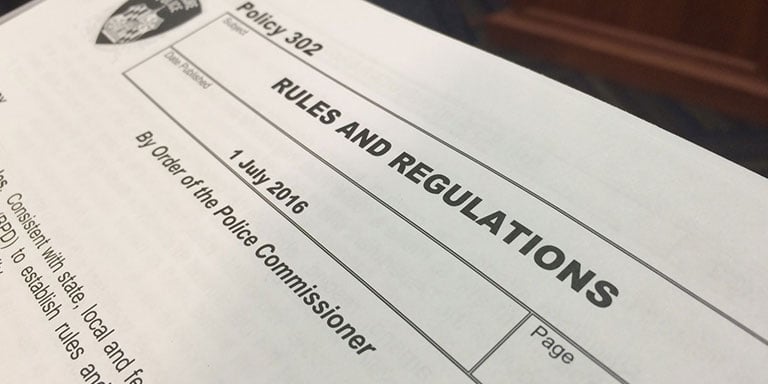
The department's Standard Operating Procedures (usually referred to as the Departmental Policy Manual) lay out specific procedures to be followed, given the type of call in question. It is imperative to find the policy relating to the officer's alleged conduct and develop a working knowledge of it.
Every department also has rules & regulations, sometimes referred to as the Duty Manual. This manual addresses the general rules of the department, including prohibited conduct. The officer should also review and understand the appropriate section of this manual. If an officer is charged with a violation of departmental policy or a violation of departmental rules, each manual's appropriate section will be referred to in the charges, stating the violation.
It is paramount that all officers read and understand both manuals. Every job has rules that must be followed, and the job of a police officer has more than most. Police rules are put in writing and every officer is supposed to have a working knowledge of them. Knowledge is power — never forget that.
An Officer Should Understand Their Rights
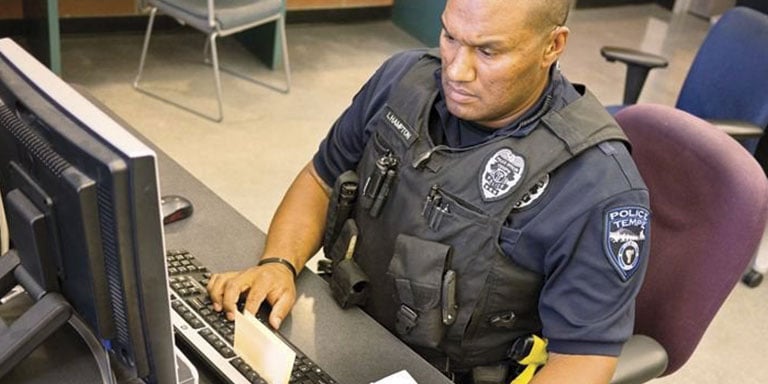
While a police officer will inevitably read many arrestees their Miranda rights during their career, they must be sure to know their own rights during an IA interview. Three sets of rights pertain to the IA process, and every officer should know and understand them. Reading and reviewing these rights should be part of the officer's pre-interview research.
Garrity rights
Garrity rights are essential to understand in a case where an Internal Affairs interview may touch on something illegal. The officer is compelled to answer every question honestly under penalty of termination. If the conduct turns out to be criminal, however, the officer would be forced to waive their right to remain silent, thereby incriminating themselves. The Supreme Court has maintained that employees can't be forced to answer questions that might incriminate them under threat of termination.
If an interview moves in this direction, the officer should request Garrity protections before answering a potentially incriminating question. In this case, the IA investigator should immediately stop the interview. In some cases, use immunity may be granted in writing for the officer being investigated by the appropriate prosecuting authority. Use immunity guarantees that the answers given during an Internal Affairs interview cannot be used in any criminal proceedings.
Weingarten rights
Weingarten rights guarantee a police officer the right to a union representative during an investigative interview. The IA investigator is under no obligation to inform an officer that they are entitled to union representation. When an officer is served with a notice of investigation, they should consider which union representative they may want present during the interview; having a knowledgeable union member at the interview is a good idea.
Loudermill rights
In the Loudermill case, The Supreme Court identified that employees have a property interest in their jobs and are afforded due process before any loss of compensation or termination. The proceeding is called a Loudermill hearing and requires employers to provide notice of the charges against the officer, an explanation of the evidence against them and an opportunity for the officer to be heard in response to the proposed action.
Understanding the Internal Affairs Process
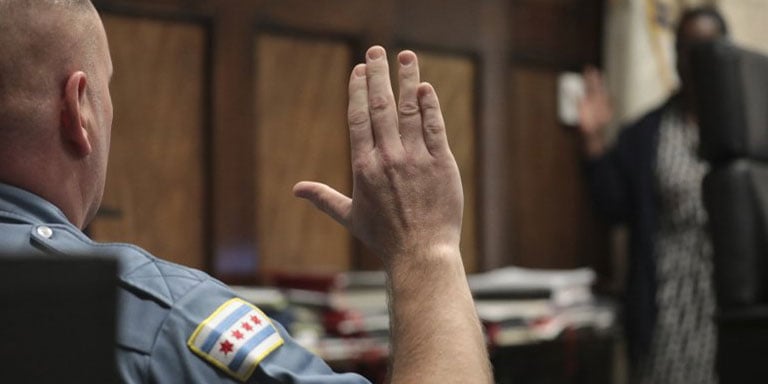
It Is helpful for officers being investigated to understand the process of an Internal Affairs investigation. During the interview portion of the process, the target officer should show the same calm, professional manner as they would when testifying in court. If the officer documented the incident that's being investigated in one of their reports, they should ask to have the reports in front of them to refresh their memory. Officers frequently bring reports and written notes to the IA interview.
Here's how the Internal Affairs process usually takes shape: a complaint is made, or information is received alleging improper conduct. The IA investigator takes the complaint. At this point, they must objectively investigate the case to a logical conclusion. Every step in the investigation must be documented and will later be presented to the chief of police.
If there are witnesses to the alleged incident, the Internal Affairs investigator interviews them, and may even canvas the area in search of additional witnesses. Sometimes, an independent witness located by the investigator can be the most credible witness throughout the process. All interviews should be audio recorded and preserved.
After speaking with witnesses, the Internal Affairs investigator retrieves and copies all audio and video evidence of the incident. The investigator should also collect a copy of dispatch recordings for the time of the incident in question. Documents concerning the case are then compiled and reviewed. A list of all officers working in the sector on the night where the event took place is also collected. Vehicle GPS records are collected, identifying cars in the area at the time of the incident.
Next, the Internal Affairs investigator interviews officers who may have witnessed the encounter. Officers brought in as witnesses must fully comply and answer all questions asked honestly and fully. The final interview in the process is that of the target of the investigation. Usually, by this point in the process, the investigator starts to get a feel for what may have occurred. The questions asked to the target officer are specific and directly related to the officer's job or the events being investigated.
It's important to stress that the Internal Affairs investigator's job is simply to collect and follow the evidence wherever it may lead; evidence of guilt cannot be overlooked, nor can evidence of innocence be manufactured. The IA investigator must put all personal feelings aside and investigate each case as fairly and objectively as possible.
Legal advice

In a serious Internal Affairs matter, an officer being investigated for committing a criminal act or for a departmental violation is likely to face major discipline. If served with an investigative notice for a serious event, an initial consultation with a lawyer may be a smart move.
Sitting down with a lawyer and laying out exactly what happened may better prepare the target officer for the Internal Affairs interview. The targeted officer is the best judge of the seriousness and potential consequences of their actions. In cases where the officer in question does have some level of culpability, a good lawyer can protect their rights and usually achieve a far better outcome than going it alone.
Putting it all together
Receiving a notice of investigation is not something any officer should ever ignore. They should attempt to identify the incident in question and review all relevant reports. They should take additional notes on things that may have occurred that are not in the report. The officer should have documents and detailed notes ready when called in for their interview.
It's wise to review both departmental policies and the rules and regulations which pertain to the alleged event. The officer should review their rights and consider which union representative to take into the interview. Lastly, if the matter is serious, consult with a lawyer early — if possible, before the interview.
Almost every officer becomes the target of an Internal Affairs investigation at some point in his or her career. Most cases are minor, such as demeanor complaints. However, for potentially serious allegations, the target officer must be proactive in defending their actions and their good name. Stay safe.
Did you find this article helpful?


